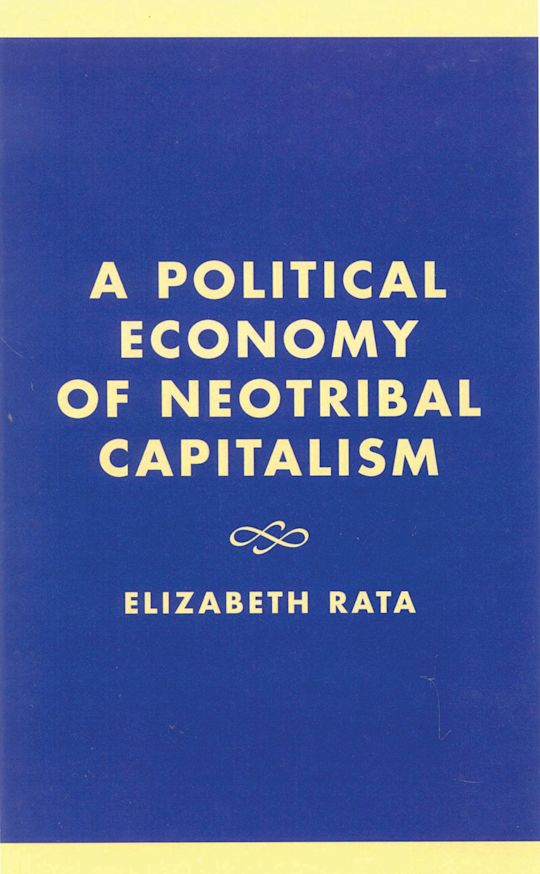- Home
- ACADEMIC
- Economics
- Introductory & General Economics
- A Political Economy of Neotribal Capitalism
A Political Economy of Neotribal Capitalism
This product is usually dispatched within 2-4 weeks
- Delivery and returns info
-
Flat rate of $10.00 for shipping anywhere in Australia
You must sign in to add this item to your wishlist. Please sign in or create an account
Description
Among the unintended and largely unforeseen consequences of globalization are the fundamental transformations of local relationships, both economic and cultural, that occur within communities drawn into the predominantly capitalist world economy. Democracy, once considered the essential political mode of regulation for successful capitalist economies, is being replaced by nondemocratic modes of social organization as localized responses to global forces, such as Maori tribalization in New Zealand, are subverted and transformed.
A Political Economy of Neotribal Capitalism looks at the past three decades in New Zealand and the shifts in the relationship between the indigenous Maori people and the dominant Pakeha (white) society to illustrate these fundamental changes to national political, social, and economic structures. The book includes a case study of a Maori family, a theoretical exploration of the concept of "neotribal capitalism," and discussions of themes such as changing socioeconomic relations; new social movements; the indigenization of ethnicity; dominant group-ethnic group realignment; and the antidemocratic ideologies of late capitalism-themes of interest to students of world political economics, international relations, and anthropology.
Table of Contents
Chapter 2 Localisation, the New Zealand Experience
Chapter 3 Theorising Neotribal Capitalism
Chapter 4 Neotraditionalism, the Ideology of Retribalisation
Chapter 5 The Emergence of Neotribal Capitalism
Chapter 6 A Critique of Culturalism
Chapter 7 The Research Studies
Chapter 8 Maori and Pakeha, the Bicultural Project
Chapter 9 Kinship Revival and Retribalisation
Chapter 10 The Ngati Kuri Tribe
Chapter 11 A Family Marine Tribe
Chapter 12 Tribal Fisheries
Chapter 13 The Threat to Democracy
Product details
| Published | 09 Mar 2000 |
|---|---|
| Format | Hardback |
| Edition | 1st |
| Extent | 288 |
| ISBN | 9780739100684 |
| Imprint | Lexington Books |
| Dimensions | 237 x 158 mm |
| Publisher | Bloomsbury Publishing |
About the contributors
Reviews
-
This book makes an important and innovative contribution to the critical analysis of commercial enterprises by neotribal Maori organisations in recent New Zealand history. . . . [It] will no doubt become a landmark in the field of contemporary Maori studies.
Toon van Meijl, University of Nijmegen
-
This work is extraordinary in a perfectly literal way. It goes well beyond the ordinary kind of discourse that is produced about indigenous movements and their outcomes. Rata's unswerving and systemic focus on the consequences [of such movements] will provide a sounding board and a source of understanding for those most deeply committed to the cause of indigenous peoples.
Jonathan Friedman, directeur d'études, Ecole des Hautes Etudes en Sciences Sociales, Paris; professor of social anthropology, Lund University



































